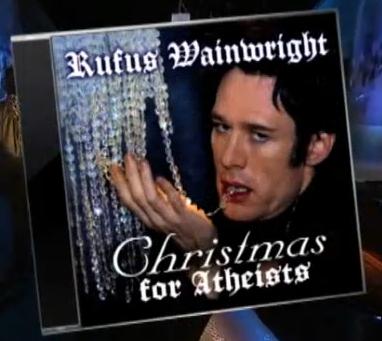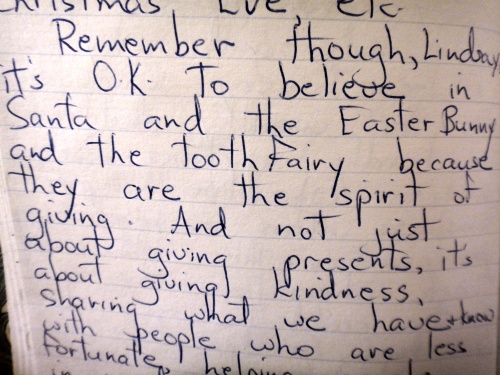It’s not often (in real life) that I get to use all of these skeptical tools and pearls of wisdom that I spend so much time learning about, so when I do get into this type of conversation my heart will start racing and I’ll get excited to where I have to concentrate on keeping a calm demeanor so that I don’t end up coming across as a crazed denialist!
The other night my husband had his friend over, who also happened to be one of my former high school teachers, so we sat around chatting for hours and touched on a lot of different topics. At one point in the conversation Dr. Oz (one of Oprah’s spin-off shows) came up, I guess because teachers get to watch lots of daytime TV during the summer!
I’m in no way a fan of Dr. Oz. I’ve tuned into a few of his episodes when there’s been nothing else on, and my main reason for disliking him is the way that he talks down to the audience, as if he’s addressing a room full of kindergartners. He gives these ridiculous demonstrations that add nothing to the conversation and dumb down already easy to understand things. Medicine is such an interesting field, and the human body is so diverse and complex that it just makes him look ridiculous to me when he talks to grown adults in a way that would have bored me when I was 10.
But obviously enough people enjoy it, so to each his/her own. What also gets me goat about Dr. Oz is how he lends his credibility to alternative medicines that don’t have supporting evidence (Reiki, for example). I brought this up and that’s what sparked a discussion with my old teacher on alternative medicine.
I wouldn’t say that Teacher (that’s what I’ll call him from now on) was full on into alt med or anything, but he came across as neutral on the subject. He seems like one of those people “in the middle”, who believes in the value of using herbs to treat minor ailments but would turn to actual medicine for big things like cancer. We touched on a lot of things that seem to pop up in every online discussion on alternative medicine, so I think I’ll break it down into some of the areas we hit and what was said.
I’ll just mention that everything I was responding to Teacher with was from memory, and I’m going to write it here as it was said so it’s possible, actually it’s likely, that I was wrong about many things and welcome criticisms and feedback.
1. “The placebo effect is strong, so alternative medicine helps even if it shouldn’t really work” There is a common misconception that the placebo effect is some kind of mind over matter thing, where your brain is actually healing your body, and so doing something like acupuncture is therefore helpful, even though there’s no such thing as “chi” or “meridians” in the body. I was three glasses of wine in, so I wasn’t going to try explaining the placebo effect in detail, especially since I don’t fully understand it sober.
Instead, I talked about how things like acupuncture can be helpful for issues like infertility or back pain because just going to a practitioner, having them pay attention to you and validate your problem, and having something physical done to you can alleviate the stress that might be causing the problem. But relying on these things can get dangerous if you start relying on alt med for problems that need proper medication.
2. Confusing homeopathy with herbal medicine. There are some types of alternative medicine that are so ridiculous that they can’t possibly work, and homeopathy is one of them, but people don’t understand what it actually is and so trust that it must work for whatever reason. Teacher was definitely confusing homeopathy with herbal medicine. I explained that homeopathy means that the active substance is diluted until there’s not even a molecule of the original substance in the solution, so there’s nothing actually in it that would have an effect.
3. Confusing proper diet with alternative medicine. I’m not really sure that this was what was happening, but at one point when we were having the discussion about using herbal medicine he brought up how cutting milk out of his diet helped him to feel better. Lots of people think of diet and nutrition as alternative medicine, maybe because pretty much every diet book out there will recommend taking some type of supplement. In fact, though, diet and the effect of different foods on the body are studied by science, and therefore perfectly in line with medicine.
4. Pharmaceutical companies are out to make a buck and want you to take medicines you don’t need, so turning to herbs is preferable. Pharmaceutical companies do plenty of shady business, but at least the drugs that they put out have standards for evidence, and will be pulled from the shelves if the drug is shown to be dangerous. With the various herbal supplements out there, they have no standards for evidence if it’s called a supplement, and there aren’t nearly as many strict controls, so you really don’t know how much of the active ingredient is contained in each pill. Not to mention many pharmaceutical companies have gotten into the supplement business, so you’re not necessarily circumventing “big pharma” when you decide to go for alternative remedies. The companies that sell those supplements and natural remedies are in the profit business too!
5. Lots of drugs were developed out of traditional healing substances, so herbal medicine must work. Sure, a lot of drugs came about because the substance used in them was traditionally used in healing the ailment. But the reason why they’re drugs now is because they were subjected to scientific testing and found to work, so the active substance was isolated or synthesized, and put into pills with specific dosages in a bottle that lays out the possible side effects. This doesn’t mean that all traditional herbal medicines work, though. Some are tested and found to do no better than placebo. There may be some out there that will be shown to work once they’re adequately tested, but I wouldn’t rely on those to medicate myself because a) possible side effects are unknown, and b) how would you know how much you need or how long you need to take it for if the substance has never been properly tested?
That was pretty much it, it was a fantastic discussion and I hope I gave Teacher (and you?) something to think about.
Sorry about the scatter-brained posting!














Recent Comments